When it becomes necessary to terminate a distributor agreement, crafting a clear and professional letter is essential to ensure a smooth transition. This letter should outline the reasons for the termination, reference any applicable terms from the original agreement, and provide guidance on the next steps for both parties. It's important to maintain a cordial tone, as this leaves the door open for future interactions or collaboration. Ready to dive deeper into the key elements of drafting such a letter? Let's explore further!

Contract Reference and Termination Clause
The termination of distributor agreements often arises from various factors including performance issues or strategic realignments within the distribution channel. The Contract Reference for this termination would typically cite a specific section, such as "Section 8: Termination Clause." This clause outlines the conditions under which either party may terminate the agreement, including notice periods (usually ranging from 30 to 90 days), grounds for termination (such as breach of contract or failure to meet sales targets), and any obligations regarding the return of unsold inventory. It also addresses the financial settlement process for commissions or outstanding payments owed upon termination. Proper documentation of the termination notification is crucial for legal compliance and avoiding disputes in the future.
Effective Termination Date
The termination of a distributor agreement, an essential contract governing the relationship between manufacturers and distributors, can have significant implications for both parties involved. The effective termination date, the precise point at which the contractual obligations cease, is crucial for ensuring a smooth transition. Typically, this date must be communicated clearly in writing, allowing sufficient time for both sides to settle outstanding accounts and address remaining inventory issues. If the agreement spans multiple territories, such as the United States and Canada, local laws may also dictate specific requirements around notice periods and final settlements. Documenting these details ensures a clear understanding, preventing potential disputes or misunderstandings in the future.
Reason for Termination
Termination of distributor agreements often occurs due to various reasons, including performance issues, market conditions, or compliance failures. In cases of poor sales performance, a distributor may generate revenues significantly below the minimum threshold, for instance, less than 50% of the annual target, leading to a reassessment of the partnership. Additionally, changes in market dynamics, such as the emergence of new competitors or shifts in consumer preferences, may prompt a company to reconsider its distribution strategy. Compliance failures, such as not adhering to specific contract terms or legal regulations, can also justify termination. Ensuring clarity and professionalism in the termination letter can mitigate potential disputes or reputation damage.
Obligations Post-Termination
In the context of distributor agreements, post-termination obligations refer to the responsibilities that each party must fulfill after the official termination of their contractual relationship. These obligations typically include the return of confidential information, such as trade secrets or proprietary data, which may have been shared during the course of the agreement. Additionally, any remaining inventory (such as products or promotional materials) usually needs to be either returned to the manufacturer or accounted for with a sales report detailing quantities sold. Financial matters must be settled, including the final payment of commissions earned up until termination and the settling of any outstanding invoices. Compliance with non-compete clauses may come into effect, preventing the distributor from engaging in similar business activities within a specified geographical area for a particular duration. Proper notice and budget for the transition period also play a crucial role in maintaining goodwill between parties involved in the distribution channels, ensuring both can sustain their market reputations amidst changes.
Signature and Contact Information
A distributor agreement termination requires clear articulation of involved parties, specific reasons for termination, and essential details for finalizing the process. Comprehensive signature sections should include names, titles, and contact information for both parties. Each party's legal entity must be clearly identified, including physical addresses and email correspondences for smooth communication. Additionally, dates related to the termination notice are crucial for clarity. Procedures for return or settlement of unsold products, outstanding payments, and any obligations under the terms of the agreement should be specified, ensuring an organized disengagement process. Properly executed signatures validate the termination, ensuring all parties acknowledge and accept the termination terms effectively.
Letter Template For Distributor Agreement Termination Samples
Letter template of distributor agreement termination due to performance issues.
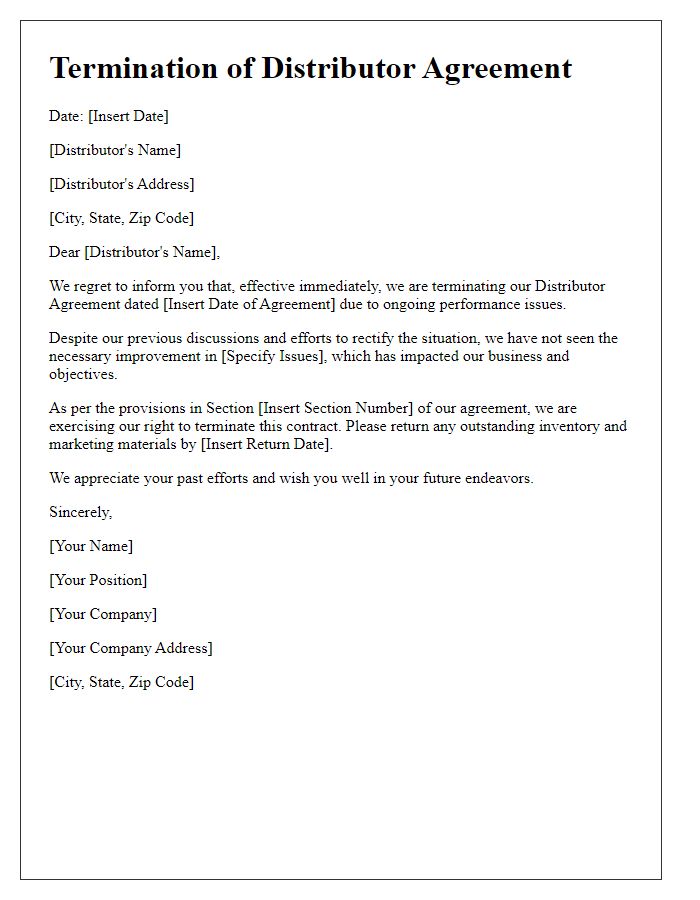
Letter template of distributor agreement termination for breach of contract.
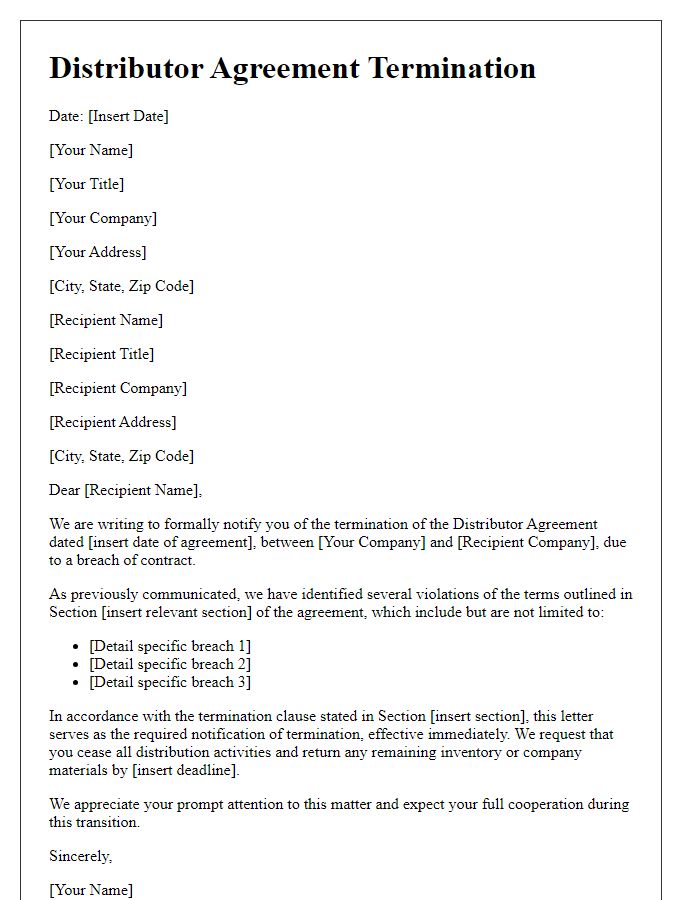
Letter template of distributor agreement termination because of business relocation.
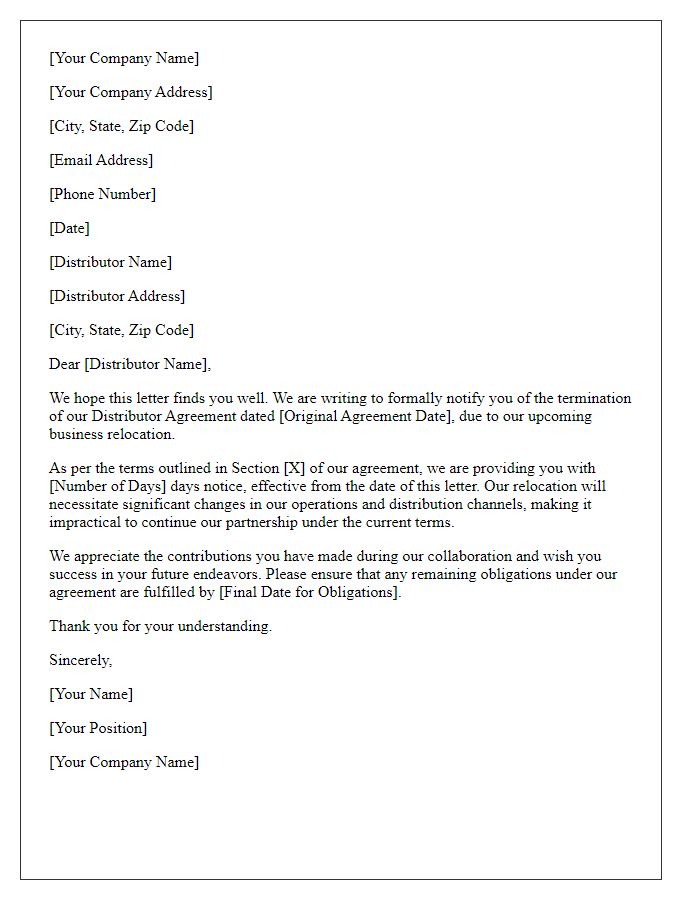
Letter template of distributor agreement termination resulting from mutual consent.
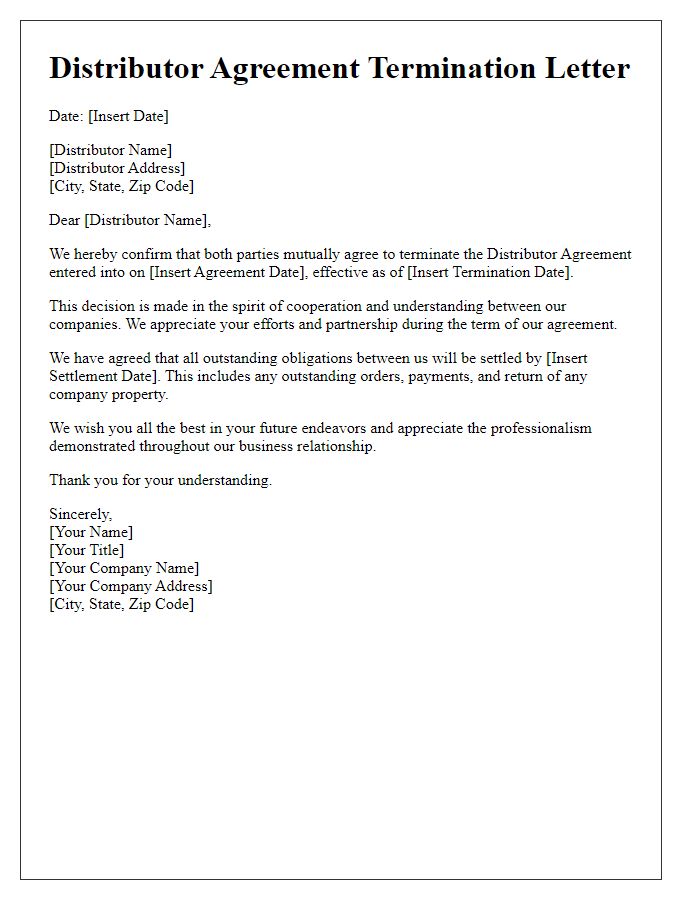
Letter template of distributor agreement termination for strategic business realignment.
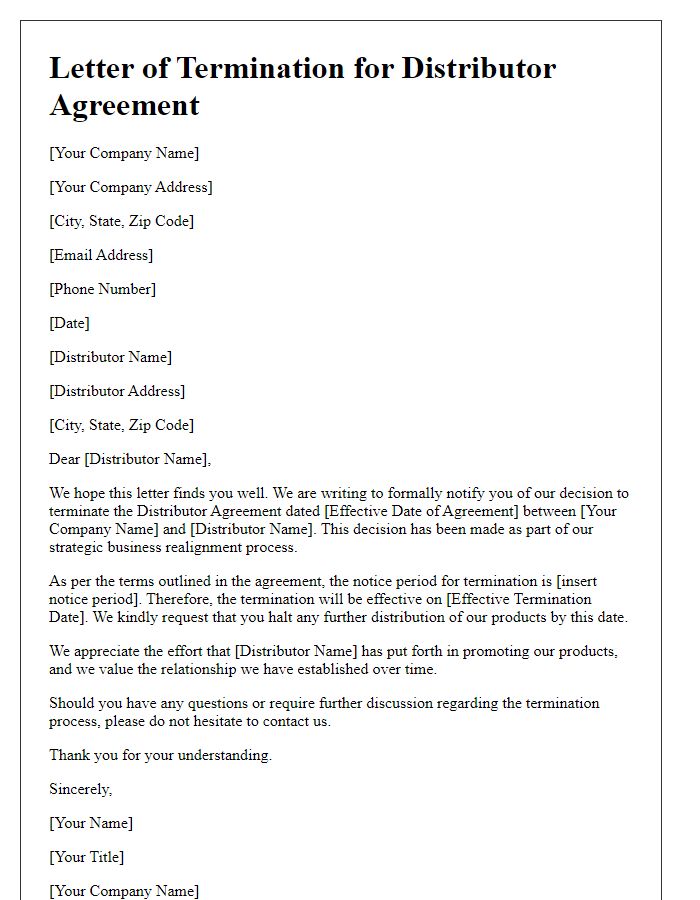
Letter template of distributor agreement termination based on non-compliance with terms.
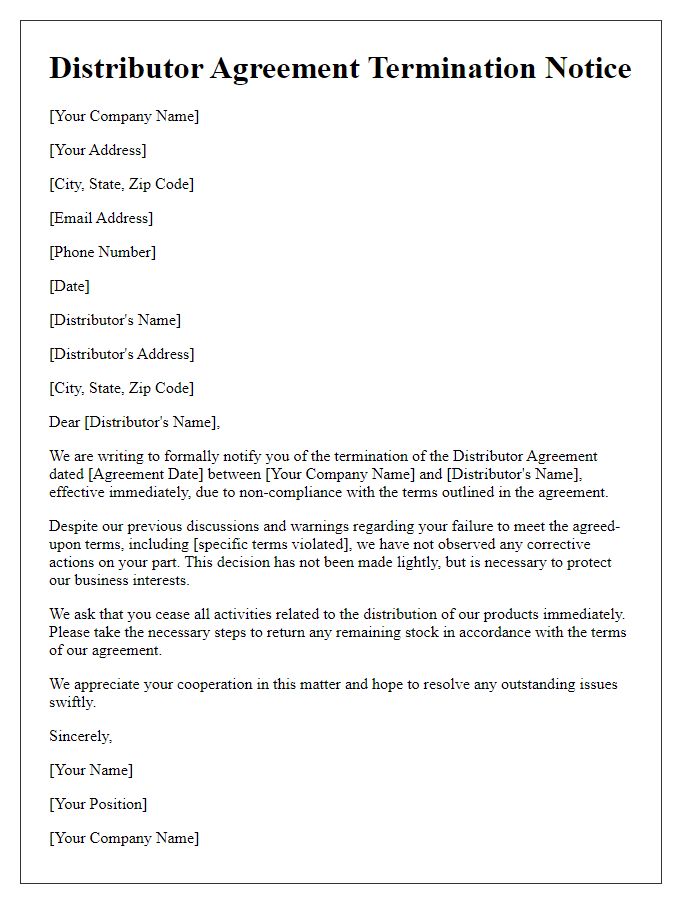
Letter template of distributor agreement termination due to market changes.
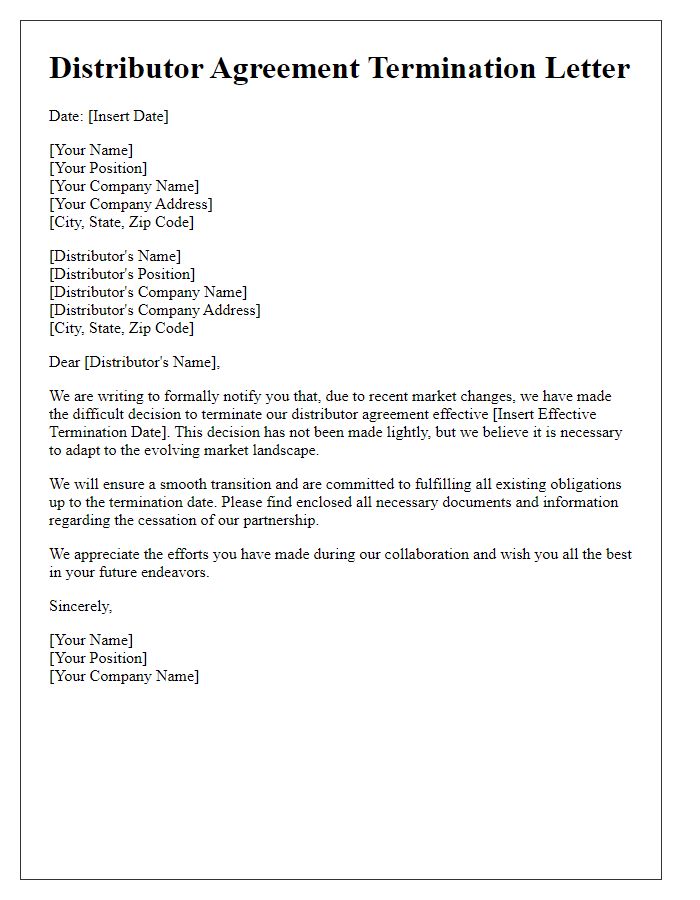
Letter template of distributor agreement termination following financial insolvency.
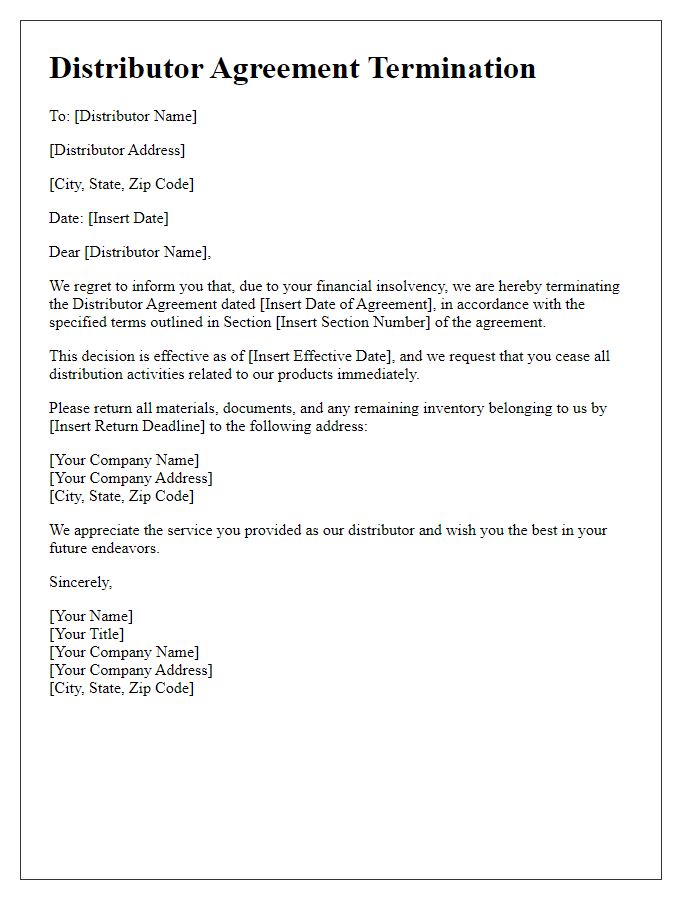
Letter template of distributor agreement termination prompted by product discontinuation.
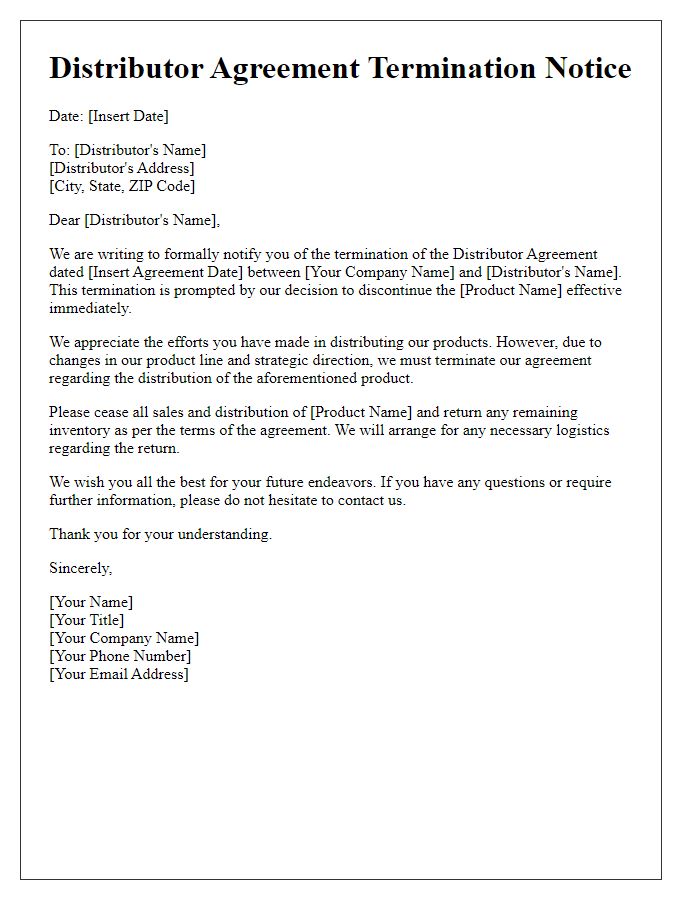

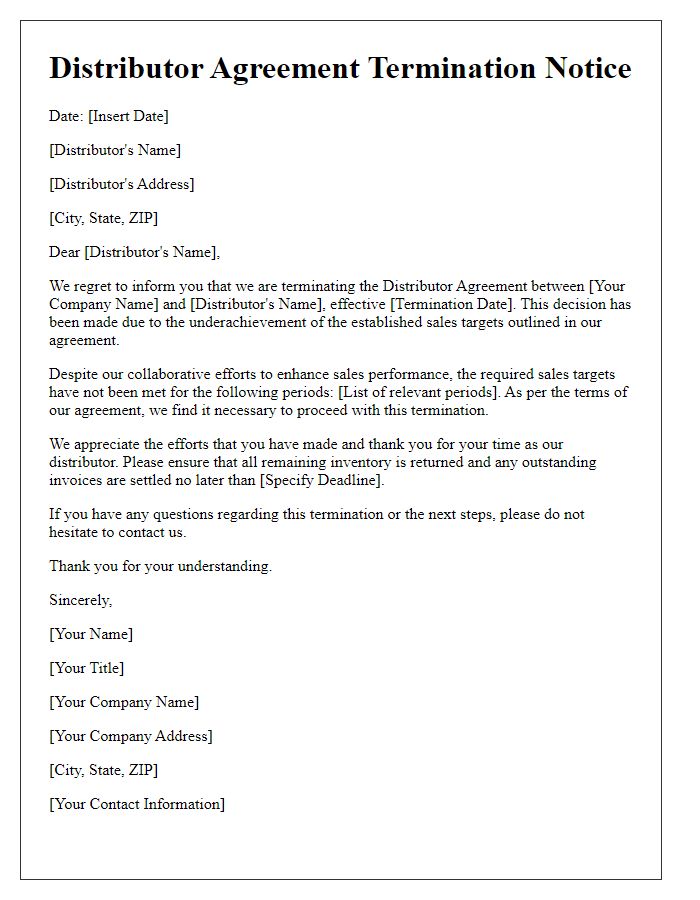


Comments